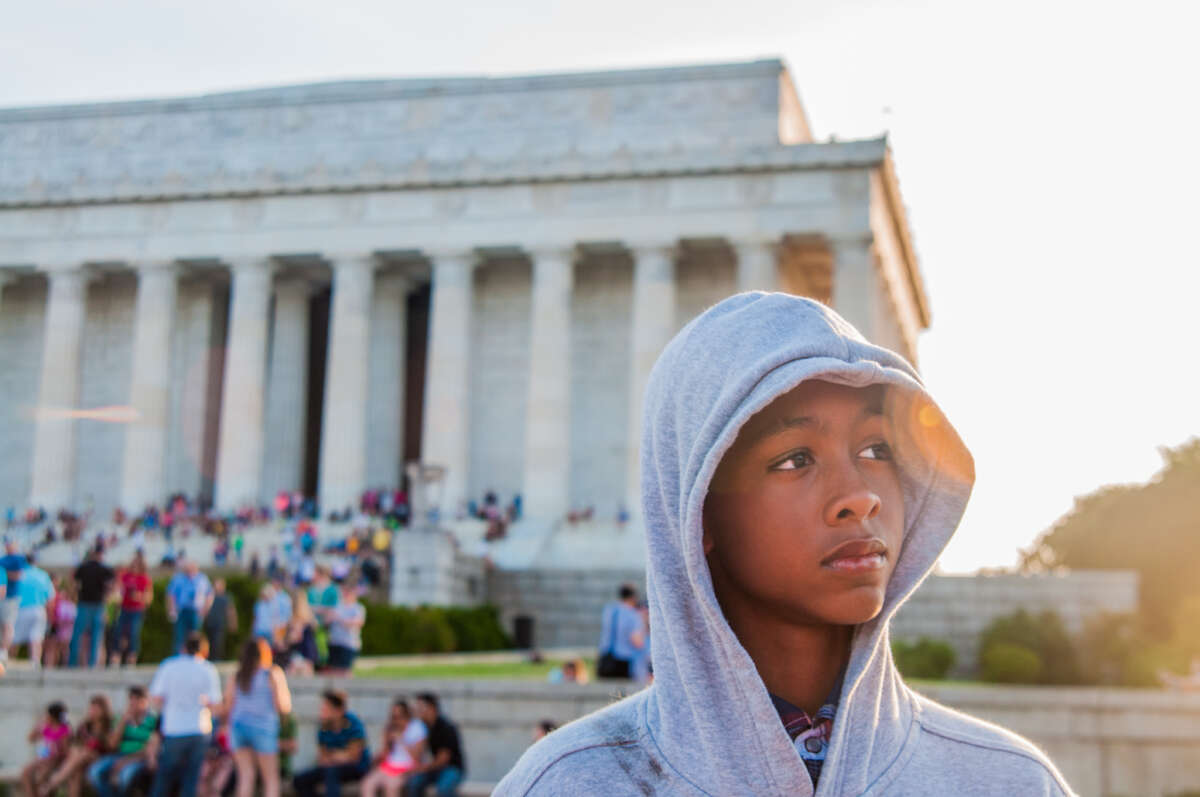The months of January and February tend to be a time when people in the U.S. reflect on the topic of racial equality. Martin Luther King Jr. Day in January is followed by Black History Month in February. In the worlds of film and publishing, there tend to be lots of new works on the subject. This got us here at Dandelion Chandelier thinking about how to spend this time period in the most meaningful way this year. Specifically, we have museums on our minds. Which ones are the civil rights museums that are most essential to see in the U.S. right now? Here’s our list of the 12 best, most powerful civil rights museums in America that we all really need to see right now, including in Washington DC and Memphis.
what are the most powerful civil rights museums in the United States?
More than just repositories for collections of priceless art and historical artifacts, museums are living spaces. They educate us, and inform the difficult and necessary ongoing conversations about our country’s past. And the impact our history has on the world we live in today.
Throughout the United States a growing number of civil rights museums are contributing to these dialogues. These institutions have done the challenging, essential work of chronicling some of the most troubling chapters of human history in ways that help us experience and understand them.
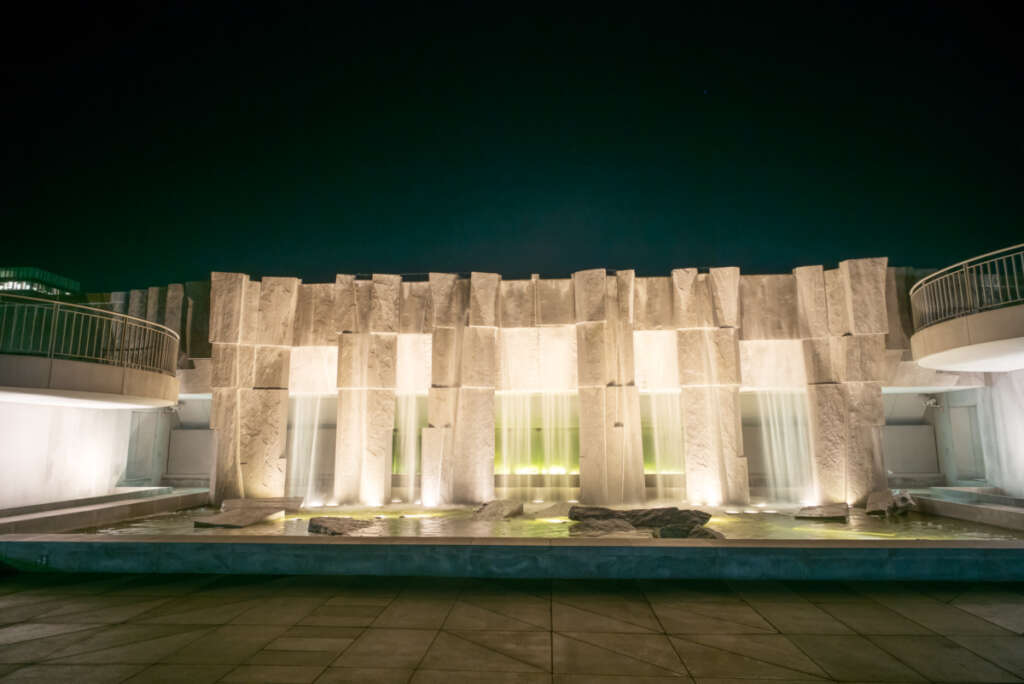
The Martin Luther King Memorial in Yerba Buena Park in San Francisco. Photo Credit: Shutterstock.
Heading into Martin Luther King Jr. Day and Black History Month, we wanted to explore some of the most powerful and moving civil rights museums around the country. We found 12 museums and monuments that educate, explore and reflect on this era and its lasting influence in highly effective and immersive ways.
A visit to any one of these spaces would make for a meaningful way to honor the struggles and triumphs of those from both the past and present who have worked so hard and sacrificed so much to change the world around us for the better. If you’re considering a family visit, or even a solo trip, just do it. You won’t be sorry.
12 best, most powerful civil rights museums in America to see right now
1. national civil rights museum, memphis.
In 1991, the Lorraine Hotel in Memphis, Tennessee, the site of Dr. Martin Luther King Jr.’s assassination, was transformed into the National Civil Rights Museum. The museum documents the history of the Civil Rights movement in America from slavery to the late 20th century. It is home to more than 260 artifacts, films, oral histories and other interactive multimedia.
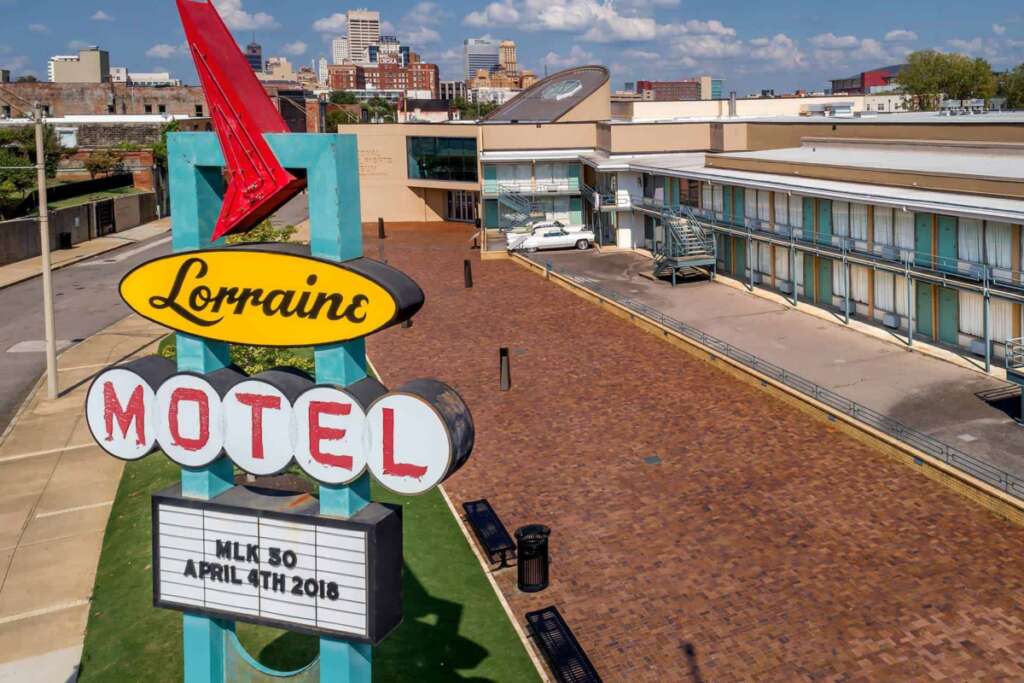
Best, most powerful civil rights museums in America to see, including in Washington DC and Memphis.
The most emotionally wrenching moment for most visitors (including us) is seeing Room 306. This is where King stayed the night before he was assassinated. In addition to that space, you will find a replica of the Supreme Court room where arguments were heard in the Brown v. the Board of Education case. An audio exhibit featuring the voice of Malcolm X. An exhibit that allows visitors to experience Rosa Parks’ defiant refusal to move to the back of the bus. And a replica of a jail cell where visitors can hear King read portions of his famous “Letter From Birmingham Jail.”
2. civil rights memorial center, montgomery.
The interior of the Civil Rights Memorial Center is best known for its exhibitions on some of the Civil Rights Era’s most famous voices. A must-see is the Wall of Tolerance. It displays a continuous digital loop of the names of more than half a million people who have pledged to take a stand against hate and to work for justice and understanding.
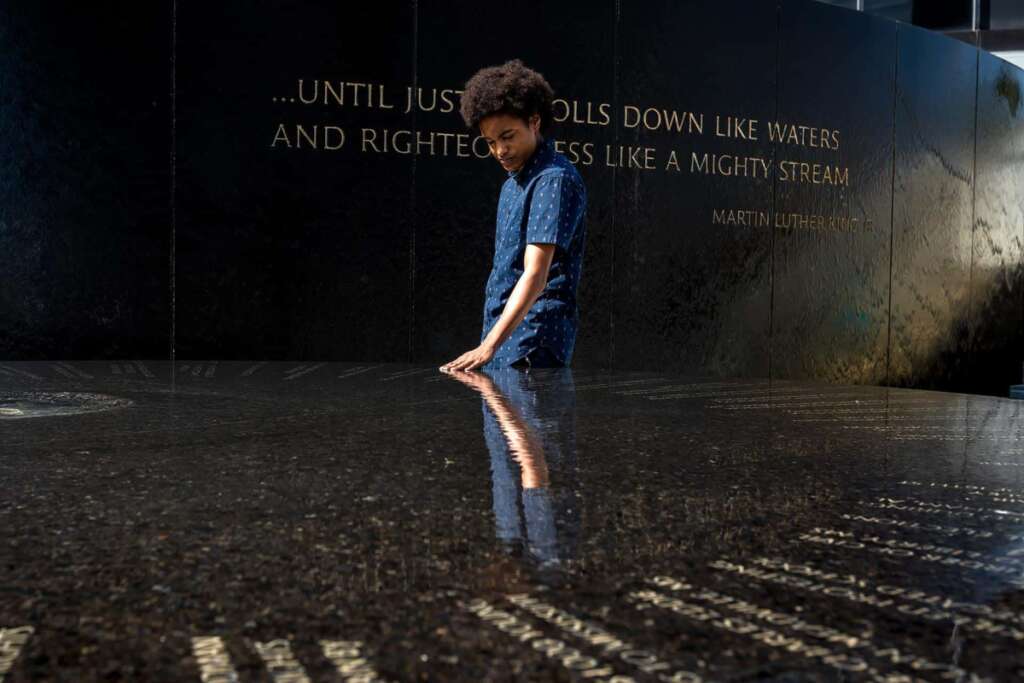
Best, most powerful civil rights museums in America.
Outside, you will find the center’s moving Civil Rights Memorial, designed by Maya Lin. The names of 40 people who died in the civil rights struggle are inscribed on a circular, black granite table. Details of the history of the civil right movement radiate in lines from the center, like the face of a clock. Lin left a blank space between the first and last entries on the memorial timeline to signify that the struggle for human rights began before 1954. And continues to this day.
Montgomery, Alabama is hugely important in the struggle for civil rights. The Memorial is just around the corner from the church where Dr. King served as pastor during the Montgomery Bus Boycott in 1955-1956. And the Alabama Capitol steps where the Selma-to-Montgomery voting rights march ended in 1965.
3. the national memorial and museum for peace and justice, montgomery.
Dedicated to the victims of American white supremacy, The National Memorial and Museum for Peace and Justice sits on a six-acre site overlooking the Alabama State Capitol. The museum and memorial, which opened in April 2018, is the first of its kind in the United States.
The museum is dedicated to the legacy of enslaved black people. Those terrorized by lynching, African-Americans humiliated by racial segregation. And people of color burdened with contemporary presumptions of guilt and police violence.
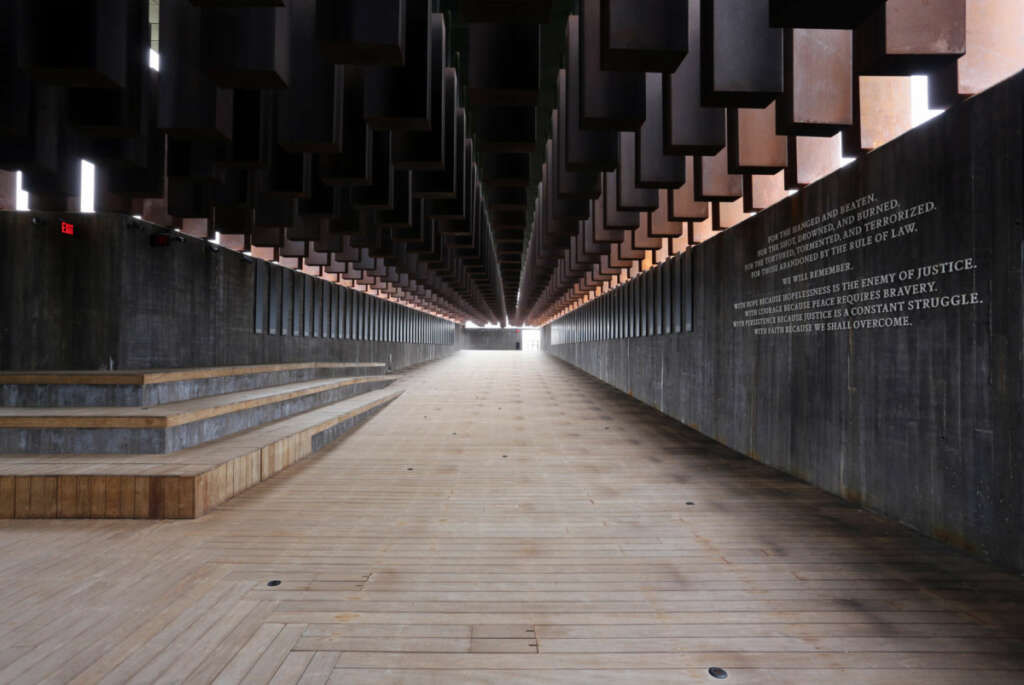
The National Memorial and Museum for Peace and Justice, Montgomery, Alabama. Photo Credit: Shutterstock.
At the center of the museum is a structure with 800 weathered steel columns, all hanging from the roof. Etched on each column is the name of an American county and the people who were lynched there. Some listed by name, and many simply as “unknown.” Over time, it is hoped that the national memorial will serve as a report on which parts of the country have confronted the truth of its terrors and which have not.
4. rosa parks museum, montgomery.
Located near the bus stop where Parks was arrested, the Rosa Parks Museum celebrates her heroism and legacy. And depicts the story of the Montgomery Bus Boycott and the early Civil Rights movement.
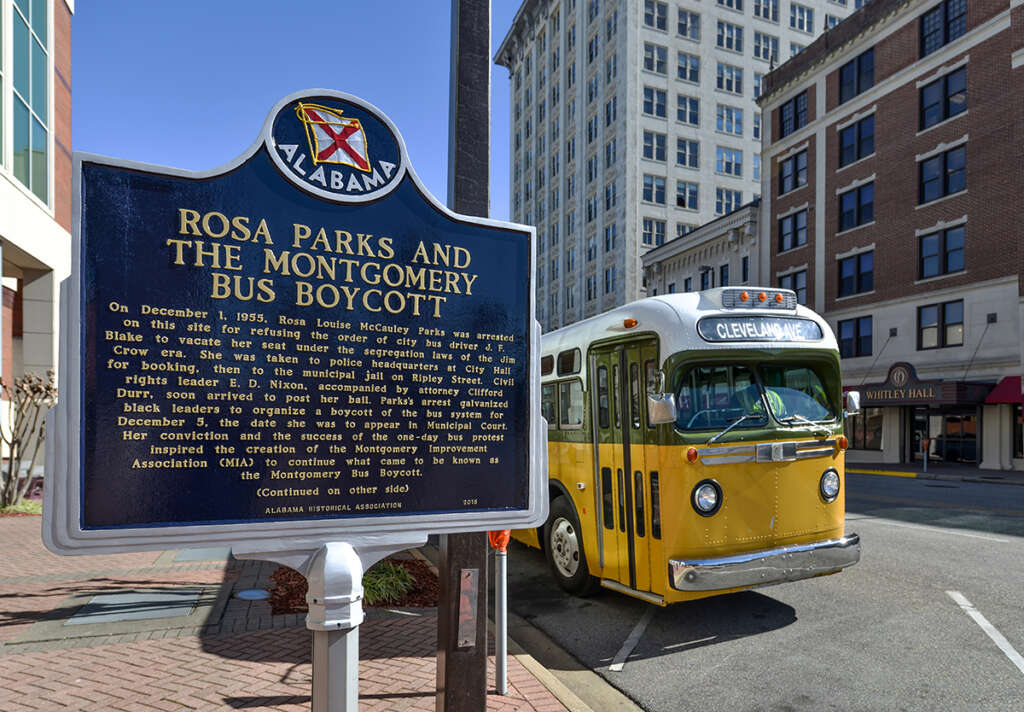
A working replica of a 1950’s era Montgomery City bus outside the Rosa Park Museum. Photo Credit: Shutterstock.
The museum features a moving multimedia reenactment of Parks’ refusal to give up her seat and move to the back of a segregated bus. There are also historic documents, audio/visual materials and interactive exhibits. And an impressive Children’s Wing that helps to explain the Civil Rights Movement to younger visitors. This section of the museum includes a trip on the Cleveland Avenue Time Machine to 1955 Montgomery.
5. museum of the africa diaspora, san francisco.
The Museum of the African Diaspora in San Francisco celebrates both African-American contributions to the Bay Area. And the culture, art and histories of the African diaspora around the world. It’s a branch of the Smithsonian Museum, and operates under the aegis of the US government.
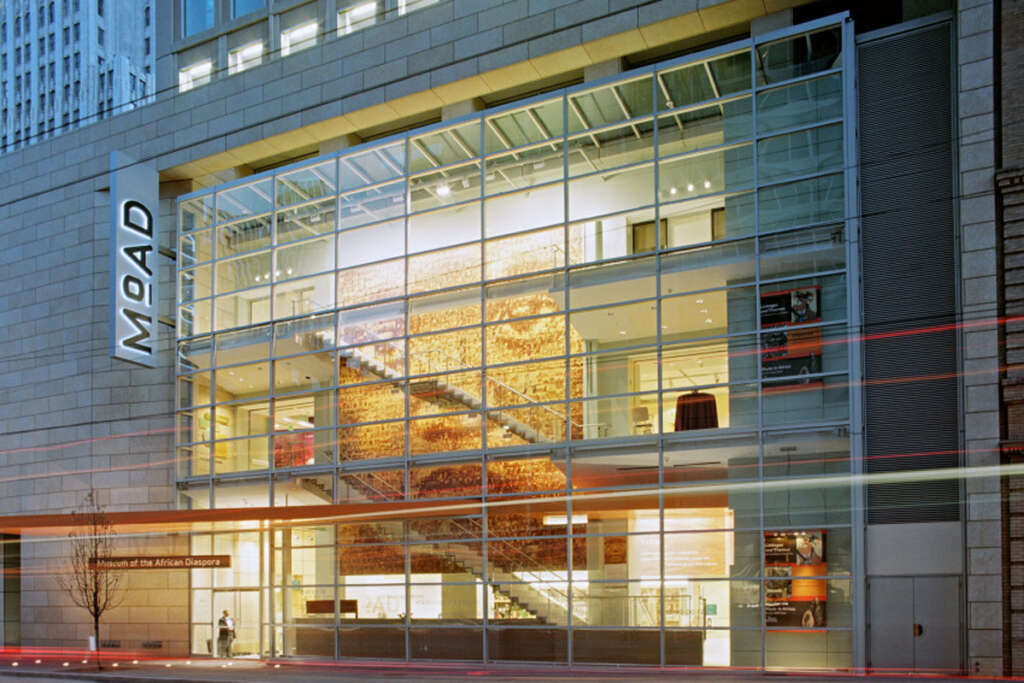
Best, most powerful civil rights museums in America to see, including in Washington DC and Memphis.
The museum’s permanent collection includes audio recordings of slavery narratives prefaced by Maya Angelou. As well as the “I’ve Known Rivers” project, a collection of oral histories from San Francisco’s historically black neighborhood, Hunters Point. One of our favorite places in this wonderful museum is the staircase that is lined with a photo-mosaic of 2,000 individual photographs revealing images of everyday African-American life – both its joys and its struggles. It’s like a big family reunion, and it’s brilliant.
6. national museum of african american history and culture, washington dc.
Since it opened in September 2016, the National Museum of African American History has welcomed more than 4.8 million visitors. The massive bronze structure on the National Mall pays tribute to African-American history and the Civil Rights Movement through a wide range of artifacts and exhibitions.
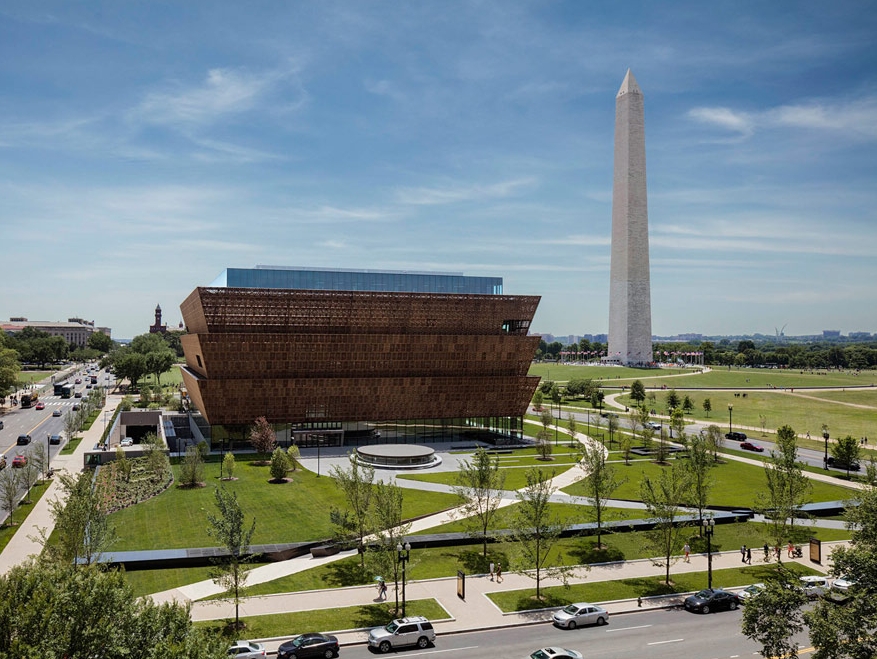
Best, most powerful civil rights museums in America to see, including in Washington DC and Memphis.
For example, A Changing America: 1968 and Beyond explores contemporary black life. The exhibit focuses on stories about the social, economic, political and cultural experiences of African-Americans starting with 1968 and the death of Martin Luther King, Jr. and concluding with the 2012 re-election of former President Barack Obama.
Afterward, walk to nearby West Potomac Park, to visit the must-see Martin Luther King, Jr. Memorial. The towering monument honors his legacy and the struggle for freedom, equality and justice. At 30 feet tall, the statue is built of solid granite. It is surrounded by engravings of quotations from some of Dr. King’s most inspiring speeches.
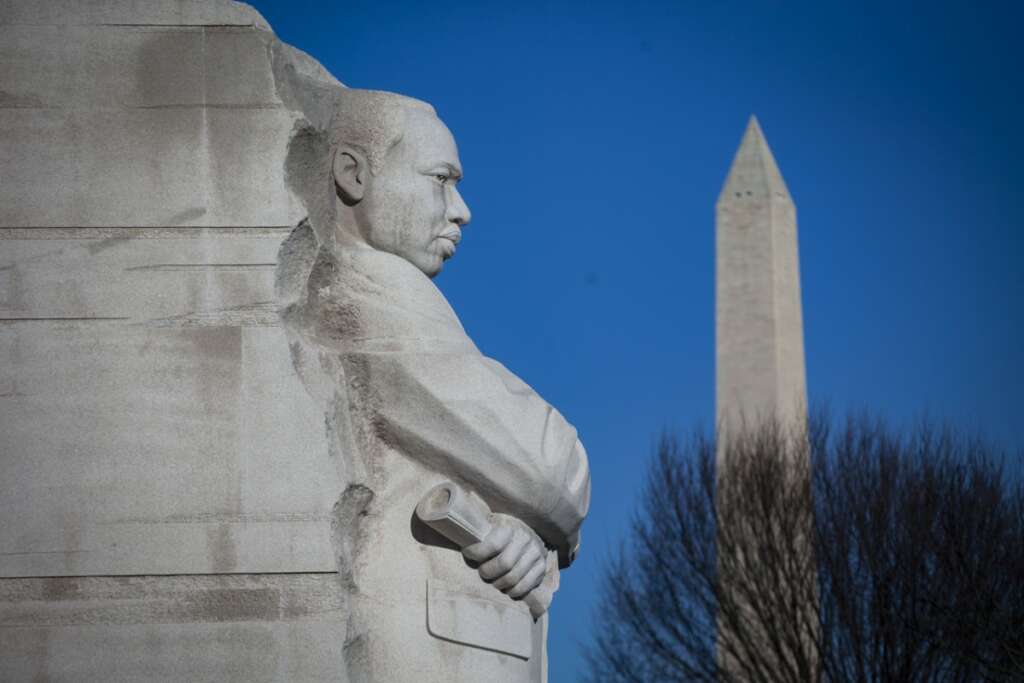
Best, most powerful civil rights museums in America to see, including in Washington DC and Memphis.
7. the international civil rights center and museum, greensboro.
The former F.W. Woolworth building, site of the lunch counter non-violent sit-ins in 1960, is home to The International Civil Rights Center and Museum. The museum commemorates the A&T Four (also known as the Greensboro Four) and their role in launching the sit-in movement that inspired peaceful direct-action demonstrations across the country.
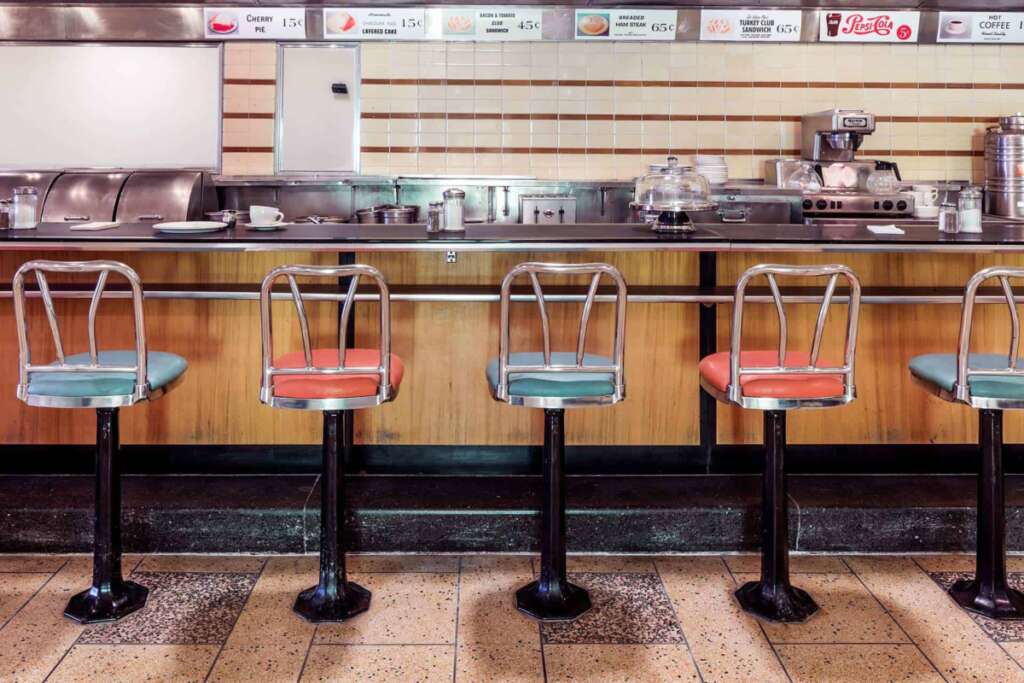
Best, most powerful civil rights museums in America to see, including in Washington DC and Memphis.
The seats and counter remain in the building in their original footprint. The remainder of the space features exhibits and videos about the A&T Four and the greater American Civil Rights Movement. This museum is known to resonate deeply with teenagers, given that the counter protests were led by college students.
8. national center for civil and human rights, atlanta.
Located on two-and-a-half acres in downtown Atlanta, the National Center for Civil and Human Rights opened in June 2014 and features three galleries. The first showcases the fight for equality in the United States in the 1950’s and ’60’s.
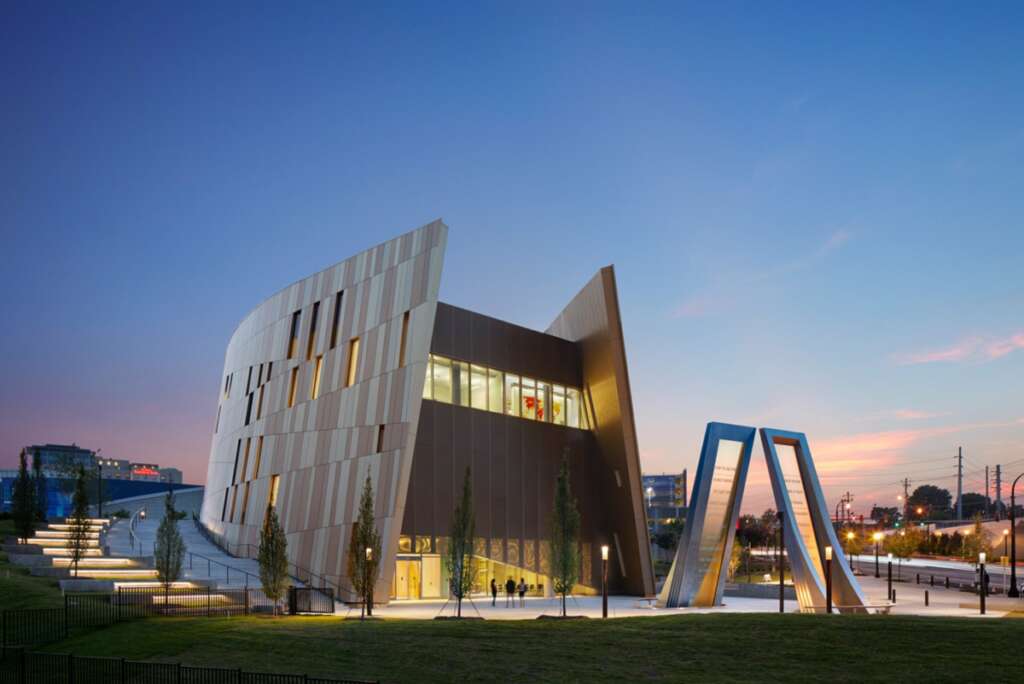
Best, most powerful civil rights museums in America to see, including in Washington DC and Memphis.
The second continues the story by focusing on ongoing human rights struggles around the world. Finally, the third gallery houses a collection of papers and artifacts from Dr. Martin Luther King, Jr. The Center uses interactive exhibits and cutting-edge technology that enables visitors to find inspiration in each story. At the Civil Rights Gallery, visitors can sit at a lunch counter and experience for themselves first hand the intensity of a sit-in.
9. the king center, atlanta.
The King Library and Archives in Atlanta is the largest repository of primary source materials on Dr. Martin Luther King, Jr. and the American Civil Rights Movement in the world.
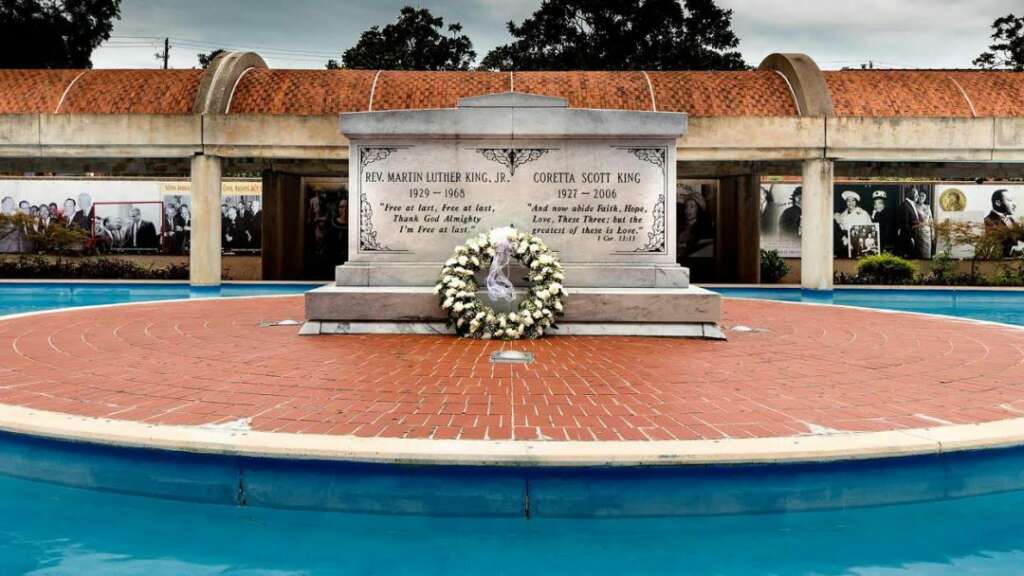
Best, most powerful civil rights museums in America to see, including in Washington DC and Memphis.
The collection consists of the papers of Dr. King and those of the organization he co-founded, the Southern Christian Leadership Conference. As well as the records of 8 major civil rights organizations and of several individuals active in the Movement. Outside the Center, you can visit the Civil Rights Walk of Fame. And the crypt of Dr. and Mrs. King. And the Eternal Flame, which symbolizes the continuing effort to realize Dr. King’s dream of the “Beloved Community.”
10. dusable museum of african american history, chicago.
Founded in 1961 by teacher and artist Dr. Margaret Burroughs with other leading Chicago citizens, the DuSable Museum of African American History is one of the few independent institutions of its kind in the United States.
The museum tells the story of the black experience in America. It starts from the slave trade to the Civil Rights Movement to the election of the nation’s first black president. Former President Barack Obama is building his Presidential Library not far from DuSable in Jackson Park.
11. birmingham civil rights institute, birmingham.
The Birmingham Civil Rights Institute is one of the oldest and largest civil rights museums in the country. It uses multimedia exhibits and stark contrasts to educate its visitors. You will find side-by-side segregated classrooms, in which the black children’s rooms have battered desks and not much else. And the white children’s classrooms which have shiny new books.
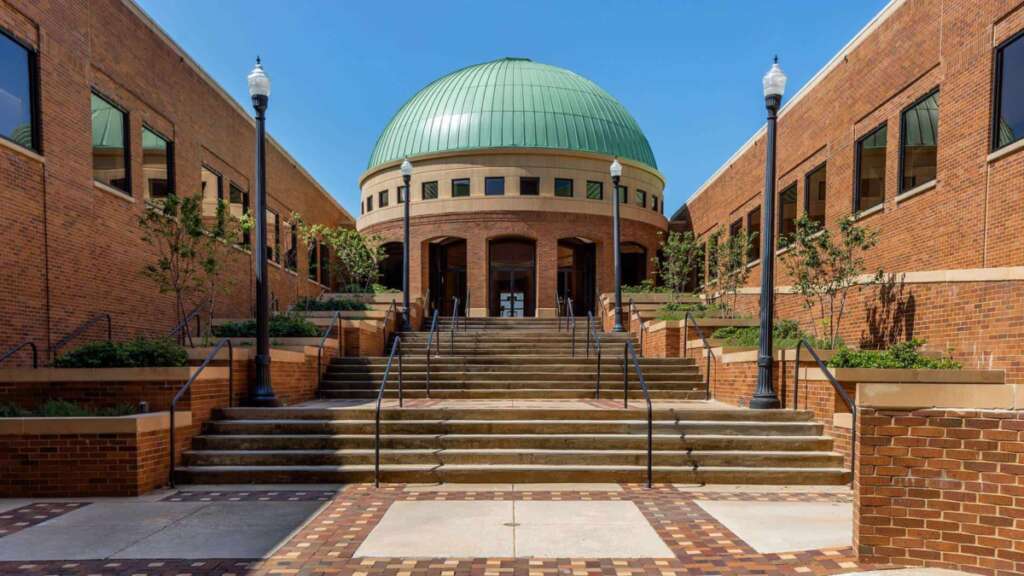
Best, most powerful civil rights museums in America to see.
The institute is also home to an expansive archive of documents from the Civil Rights Movement. They have nearly 500 recorded oral histories relevant to the period. Across the street from the museum sits the 16th Street Baptist Church. This is where four young girls lost their lives in a terrorist bomb blast in 1963. It also faces Kelly Ingram Park. Earlier that same year, the public safety commissioner ordered the use of fire hoses and police attack dogs against civil rights protesters. Many of them were children.
12. mississippi civil rights museum, Jackson
The Mississippi Civil Rights Museum in Jackson is connected directly to the Museum of Mississippi History in the state’s capital. It’s a fitting reminder that the history of Mississippi cannot be fully understood without a comprehensive assessment of the civil rights movement and the lived experiences of Black people in the state. Both institutions opened on December 9th, 2017 to mark the state’s centennial. The history museum highlights the many diverse people who contributed to the state throughout the century. And the civil rights museum takes a deep dive into the events in the movement that occurred in Mississippi.
the most powerful civil rights museums in America
Whether you make it to one of these museums or not in the coming months, our hope is that we can all reflect on the important work that these spaces have done in documenting and sharing these vital stories of our nation’s past.
